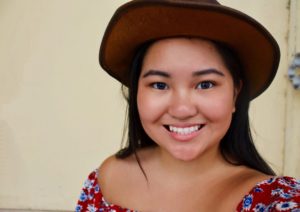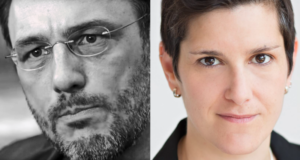
Rachel
In the age of American President Donald Trump, the idea of a post-racial world continues to be challenged.
Throughout his presidential campaign and his first hundred days as president, Mr. Trump and his administration have engaged in strong anti-immigrant rhetoric to harness support from the people. In light of re-emerging racial prejudice, for many, embracing one’s cultural heritage has been emotionally tasking.
From our earliest stage of childhood one of our most basic human desires is to obtain some sense of belonging. Today, with Trump seemingly wanting to draw a line in the sand, or rather build a wall on the ground, between those who are “white” and those who are not, it is no surprise that even now as adults we find ourselves wanting to assimilate in order to fit in. Thus, it has become an internal struggle between embracing where you come from and being accepted in society, even though it should not have to be a choice.
Former Team Canada athlete Rachel Wong, suggests that in the age of Trump it is now more than ever important to accept yourself as you are.
Now earning her undergraduate degree in political science and American studies at the University of Toronto, I asked Rachel to break down the emotional journey of embracing your heritage.
In our interview, Rachel recalls struggling to fit in with her peers from an early age: “Sometimes it can be very hard to embrace your heritage when you’re not in the ethnic majority. Growing up in a predominantly Caucasian and affluent neighbourhood makes it even harder because from a very young age you start to realize that you don’t look like everybody else […] so in order to fit in, you try to distance yourself from your own culture.”
Despite her successful athletic endeavours, Rachel says racial stigmas affected her self-confidence. In fact, she admits that it wasn’t until she relocated to Toronto that Rachel began to fully take pride in her heritage. This comes to no surprise as Toronto, the city previously hailed as the most multicultural metropolis in the world, not only accepts but also encourages diversity. In the cultural mosaic of our city, Rachel began to embrace her ethnic roots, even going so far as to do non-profit work in Chinese-Canadian communities in the GTA and taking an interest in learning her maternal grandparent’s Filipino mother-tongue.
Sadly, as Mr. Trump’s anti-immigrant rhetoric gained traction, a lot of people were feeling stunned and ostracized. For Rachel, it brought back a lot of negative childhood emotions as she recalls feeling “the initial urge to shy away” from her newfound cultural pride.
In addition to Mr. Trump’s desire to implement a travel ban and a mass deportation of immigrants, he has also called for greater assimilation in the United States, claiming that “we have to have assimilation—to have a country, we have to have assimilation,” supporting the far right notion that immigrants should “assimilate to cultural mainstream as typified by white Americans.
Given these strong anti-immigrant sentiments, it’s no wonder many individuals who come from “non-white” cultures would feel the need to abandon their ethnic roots in favour of traditional “North-American norms.”
As Mr. Trump continues to cast people of color as being outsiders in the country they call home, the challenge of embracing one’s cultural heritage plagues more young individuals who are already struggling to find their own identity in this world.
Yet surprisingly, Rachel says Trump’s harsh views on immigrants has only encouraged her to continue to take pride in her ethnic diversity and stand up against anti-immigrant rhetoric. She says, “I realized that now more than ever it is important to challenge the negative connotations that people sometimes attach to immigrants and even to second-generation Canadians [or Americans], like myself.”
As Rachel earlier admitted, her attitude towards her ethnic heritage has certainly evolved as she’s gotten older. When I asked her what she thought the key to learning to embrace one’s heritage is, the gold medalist replied, “Education and a lot of love.” She credits positive role models in her life and her exploration of American studies at The Munk School of Global Affairs in the University of Toronto.
Certainly education, or in some areas the lack there of, is one of the main reasons why America is experiencing such turbulence in their socio-political society. On her pursuit of higher education Rachel says, “Like most things that interest you in life, learning about it is often really beneficial. For me, examining American politics and society at a time like this, has really afforded me the tools to think about ‘the why’ and focus on why racial prejudices are resurfacing or why we’re seeing so many people out there protesting.”
In addition to the education itself, Rachel suggests that having the right educator also makes a big difference.
“I happen to think I have the greatest professor slash [sic] mentor, she continually encourages me to question imaginary boundaries that society draws and to be confident in myself and my abilities. When you have someone who emulates traits that are applicable beyond the classroom, like courage and kindness, you’re instantly affected by it.”
With a smile and a sip of coffee, she adds that one of the largest influences in her life has been her first-grade teacher. “We share the same ethnic background, but more importantly she just has the greatest heart. Having her as a role model in my life, in addition to my own parents, has helped me to embrace what makes me, me. She taught me resilience, strength and compassion that has helped me to grow into a person that I’m proud to be today and she showed me at an early age that being different doesn’t equate to being less than.”
The journey to finding self-love in today’s age seems nearly impossible, but Rachel reminds us that when you surround yourself with positive people, it becomes much easier. Embracing your ethnic heritage is something that shouldn’t be a challenge because no one should feel compelled to change who they are. At the end of the day, you are no less Canadian or American because you have ancestors that come from another continent. At the root of it all, we’re all immigrants.
– Jack Rogers can be reached on Twitter at @J_Rogers22.
To connect with Rachel herself, visit her social media pages on Twitter (@rachelwong21) or Instagram (@fromrachwithlove).
 TheBulletin.ca Journal of Downtown Toronto
TheBulletin.ca Journal of Downtown Toronto


